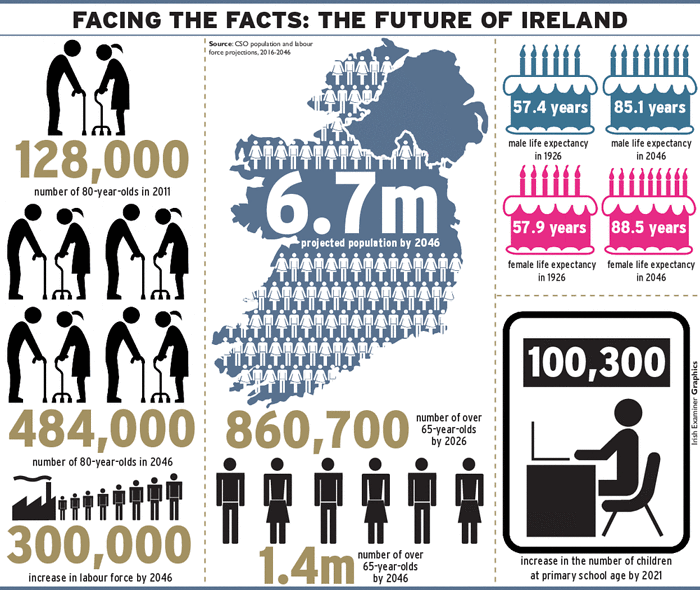https://web.actuaries.ie/sites/default/files/story/2015/12/151216 Press Release State Pension.pdf
The Society of Actuaries has published a detailed report by Milliman that adds to the growing body of research that concludes that the State's pension system is unsustainable in its current form and "doing nothing" is simply not an option.
The report highlights a number of potential options to improve the sustainability of the State's pension system and acknowledges that there is no easy solution.
This really should be a key issue in the forthcoming general election.
The Society of Actuaries has published a detailed report by Milliman that adds to the growing body of research that concludes that the State's pension system is unsustainable in its current form and "doing nothing" is simply not an option.
The report highlights a number of potential options to improve the sustainability of the State's pension system and acknowledges that there is no easy solution.
This really should be a key issue in the forthcoming general election.
